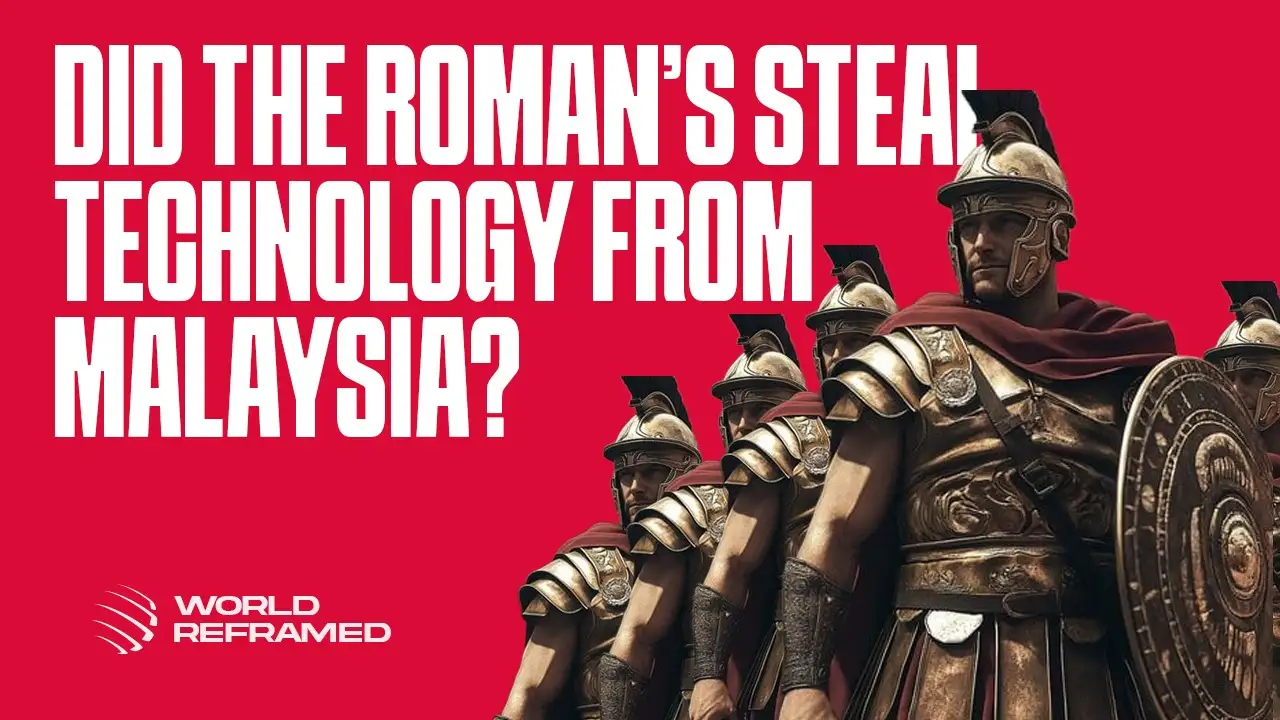Did the Malays teach the Romans to build ships? The debate behind a viral claim

World Reframed 18 looks at how historical context informs modern debate - even on social media.
The Roman Empire ruled a vast stretch of territory encircling the Mediterranean Sea, powered by an extraordinary network of trade. Wine, olives, furs, timber, pottery, metalwork, and grain passed constantly between Greece, the Middle East, Egypt, and the enormous port of Rome itself. None of this would have been possible without advanced shipbuilding. And without those ships, could the civilization that shaped Europe’s languages, legal systems, religion, and political traditions ever have flourished?
It is this question that lies behind an unexpected and controversial claim: that the Romans learned to build their ships from a civilization far to the east - one rarely studied in Europe - the Malays.
The controversial claim
The theory comes from Solehah Yaacob of the International Islamic University Malaysia (IIUM), who produced a PhD thesis arguing that Roman shipbuilding borrowed directly from Malay designs. For her, the evidence begins with geography and culture. The Malay peninsula and surrounding archipelagos have always been deeply maritime societies. Positioned on the ancient trade routes linking India, the Middle East, and China, Malay communities developed sophisticated vessels suited for long-distance trade and travel.
Early Chinese sources from the start of the first millennium describe Malay ships capable of carrying up to 700 people and 600 tons of cargo.
Crucially, Malay ships were constructed without metal fastenings, relying instead on wooden pegs. And builders constructed the hull first and the internal frame afterward. This “shell-first” method may seem counterintuitive, but it is also how Roman ships were built. Yaacob argues that this similarity suggests not coincidence, but influence.
As intriguing as the claim is, it quickly runs into serious problems. The Phoenicians and Vikings - seafaring cultures separated by both time and geography - also used shell-first construction. This weakens any argument that the technique must have originated in one place and diffused outward.
More significantly, there is no archaeological evidence of contact between Malays and Romans during the period when Roman shipbuilding was developing. Most experts therefore see the similarities as an example of parallel innovation: different societies arriving independently at the same practical solution for building large, sturdy vessels.
And Yaacob’s credibility has been questioned before. In an earlier academic paper, she cited as fact a satirical magazine’s joke claim that ancient Greek was secretly invented in the 1970s.
Why the debate matters
If the theory is weak, why has it generated so much discussion -enough to reach Malaysia’s parliament?
Because beneath the historical questions lie modern political and cultural tensions.
Malaysia is a multi-ethnic country in which Malay Muslims enjoy particular privileges in part due to Article 153 of the constitution, which provides special measures for Malays and indigenous groups. These measures were introduced after independence to compensate for decades of discrimination by the British colonial rulers who had given administrative and skilled jobs to those of Indian and Chinese ethnic origin. In that context, a bold theory about Malay technological influence on Rome speaks to contemporary desires for recognition and pride.
While several Malaysian politicians have dismissed the claim as obviously untrue, some defended Yaacob’s work as deserving of more respectful consideration.
Whether Romans truly learned shipbuilding from Malays is almost certainly a question with a simple answer: no. But as with many debates addressed on World Reframed, the factual correctness of the claim is only part of the story. The intensity of the reaction reveals much more about Malaysia today—its politics, its identities, and its ongoing efforts to shape and decolonise its historical narrative.
Click here to watch our previous episodes
World Reframed is produced in London by Global South World, part of the Impactum Group. Its editors are Duncan Hooper and Ismail Akwei.
ISSN 2978-4891
This story is written and edited by the Global South World team, you can contact us here.